The mindfuckery reaches a dizzying crescendo in the final episode in the Netflix documentary, especially in the last 30 minutes. One moment a brand new suspect is identified, then another, then another, THEN ANOTHER, THEN ANOTHER…
IN THEIR SIGHTS Madeleine McCann may have been snatched by two creepy blond men seen scouting Maddie’s apartment hours before she vanished, documentary claims – The Sun [2019]
Madeleine McCann: Did this man snatch Maddy? – The Mirror [2012]
Madeleine McCann ‘snatched by wobbly fat woman and is still alive’ – Daily Star

It’s almost with gleeful celebration that these names and numbers are touted. Why all of this information is “saved” for last is odd. Why not have an episode that deals exclusively with the long list of suspects [all of whom turned into dead ends], rather than throwing darts at a board and going, could it be this guy, how about this one? Could Madeleine be in Morocco? How about Australia? What about this Marina here, at 06:00 on May 4th?



There is a cultish triumphalism about “keeping the faith” in episode eight that reminds me of Apocalyptic Doctrine in the bible. The longer the Apocalypse doesn’t happen, the more certain it is to happen. If Armageddon hasn’t happened after 2000 years of prediction, oh boy, are we close to it happening now!
Also, the longer the Apocalypse doesn’t happen, the more evidence there is that it’s about to. It’s the End of Days. Something is about to happen.
It seems the same counter-intuitive gospel is being used here. The longer Madeleine remains missing the more certain she is to be found. The longer she remains missing, the more certain there is to be evidence that shes out there.
If we applied this gospel to our everyday lives, whether applying for a job, or asking someone out on a date, most would agree that the longer the period without confirmation, the more certain the reply is likely to be negative.
Of course it’s of no use to be broadly dismissive [of anything] in true crime. And, like we see in The Matrix, one can’t be told what something is, one must experience it in order to know it. Saying something is bullshit is one thing, smelling it is another.

With that in mind, let’s take three specific examples of mindfuckery in the final episode, to see what we’re dealing with.
1. It’s The Ocean Club’s Fault
Kate McCann found out that a booking they’d made at the Tapas Restaurant had been visible to others. In other words, it’s written explicitly in the registration/bookings book that the families would spend a week dining in the Tapas Bar at a particular time because their children were somewhere else. Now it’s the Ocean Club’s responsibility for allowing this sensitive information to fall into the hands of a shadowy, lurking pedophile abductor who happened to be floating around the Club there and then.

One of the co-authors narrating the story provides reinforcement for this same mind-job. This time it’s the fault of the authorities for not informing tourists that Praia da Luz was swarming with pedophiles, and if they’d only known this, they would never have left their children alone.


This is a wonderful jab firstly at the irresponsible Ocean Club staff, and secondly at the bungling Portuguese cops. Had they done their jobs, the parents could have dined in peace without their child being abducted while they were away.

There seems to be absolutely no question that leaving young children alone for an extended time actually invited some sort of incident in the first place.
We did not get nanny service for Madeleine, says Kate McCann – Telegraph
One aspect of the McCann narrative that is also missed is that the McCanns didn’t just leave three-year-old Madeleine so that they could dine somewhere else, they left three children, including two one-and-a-half-year-olds. In addition to this, when the McCanns were dining out, Kate herself didn’t do her check when she was supposed to, but gave up her check to someone else. On the night of May 3rd, the night Madeleien disappeared, by the time Kate did her one check Madeleine was already gone.

It’s also strange what Kate doesn’t seem to say – not in the documentary nor in so many of the interviews she’s given over the years. It would be the most natural [and understandable] thing in the world for her to say, and if she said it one would probably feel a lot more sympathy for her. “I feel guilty. I feel bad. It’s my fault…”
But you don’t hear those words. Instead it’s everyone else’s fault but the McCanns, and everyone else is a suspect, or made serious mistakes, or errors in judgement, but the McCanns.


Instead when Kate has spoken about feeling guilty, as she did in April 2017, it’s about money.
Ten years after she vanished, Kate said: “You do feel guilty. Other families haven’t had the publicity and money.” Former GP Kate, 49, admits she used to feel “really embarrassed” about the £11 million spent on the investigation.
I wonder – do they feel guilty about £20 million spent on a documentary that’s really about implicating a host of obvious suspects, while clearly making an effort to exonerate them in the court of public opinion?
One should also note that after years of adverse publicity, the Ocean Club resort where Madeleine died or disappeared went bankrupt. A lot of people lost their jobs. All the money Kate felt embarrassed about could theoretically have gone to saving some of those jobs lost as a result of unrelenting bad press surrounding the luckless resort.
‘WIPING AWAY THE HORROR’ Infamous holiday villa where Maddie McCann went missing is closed to ‘spooked’ holidaymakers – The Sun
The property, which the new owner is partially shielding from public view, was axed from tour operators’ recommended accommodation after stunned holidaymakers learned it was “the Maddie flat.” A British expat living in the resort told The Sun Online said today: “The place is no longer being used as a holiday option. I’m surprised it lasted so long as a viable let with its grim history.”
What happened to Praia da Luz holiday apartment where Madeleine McCann went missing? – The Mirror [May 2017]
The McCann’s had rented the flat from Mark Warner Holidays for around £1,500 for a one-week holiday when three-year-old Maddie vanished from her bed on May 3, 2007.
The two-bedroom apartment lay empty for a month but was then used by two families for a one-week and fortnight-long holiday before it was finally sealed off as a permanent crime scene. Once the world’s media had departed the front of the Ocean Club complex and Portuguese police closed their investigation in 2008, the property was put up for sale for around £250,000. The price was repeatedly slashed until it was eventually sold earlier this year for around £113,000 by British widow Kathleen Macguire-Cotton.
Holiday firm leaves resort where Madeleine McCann disappeared – The Express
Madeleine McCann case: Resort firm Mark Warner sues insurers for losses – The Guardian
• Company blames adverse publicity for parents staying away
• Claim centres on losses for ‘interrupted business’
‘We’ve just had enough of it’: Ten years on, Praia da Luz remembers the night Madeleine McCann disappeared – Telegraph [May 2017]
…for two years after her disappearance, the number of tourists “noticeably decreased”. “People lost their jobs because of this. A lot of shops and restaurants closed down. It had a huge influence on the real estate market.”
‘OUR FRESH HOPE’ Madeleine McCann parents’ delight as cops ask for more funding to keep search for missing child alive – The Sun [March, 2019]
If it was the Ocean’s Clubs fault, they and much of Praia da Luz have paid a price and done their penance many times over.
2. “New Technology will help us find Madeleine…”
This is a decent point raised in the final episode. Advances in technology are improving the forensic side of true crime investigations. The application of these technological breakthroughs in the McCann case could be applied in two areas above all, DNA testing and facial recognition software.

The Netflix narrative doesn’t highlight either of these very practical areas in any detail, but instead goes to the fuzzier area of time-lapsing Madeleine’s appearance. What would she look like now?

Ernie Allen [pictured above] is the ex-President & CEO of the National Center for Missing & Exploited Children in America. He narrates chunks of virtually every episode in the series [with apparent impartiality].
In the final minutes of episode eight we see Allen working side-by-side with the McCanns for the first time. Allen is touting cutting edge technology to the McCanns, and doing so on camera. It has nothing to do with DNA [and there is much in dispute and much uncertainty regarding the DNA evidence surrounding this case] or facial recognition software. It’s simply a kind of digital “aging”.

Although the value of “aging” Madeleine’s face has dubious application in my opinion [especially if Madeleine is no longer with us], the interaction between Allen and Kate is worth noting.
Observe how both Allen and Kate emphasise how Madeleine’s features resemble her mother’s. Gerry is not mentioned and remains uncharacteristically silent throughout this aspect of the discussion.








Why would it be “upsetting” to see her three-year-old recast as a little girl, apparently alive and well? If Madeleine is dead, then clearly all of this is a reminder of what Madeleine herself has missed, isn’t it?
3. “There are many, many, many similar cases of abductions where years went by and the people were found, and they’re JUST LIKE Madeleine..”
The Intertextual aspect in the McCann case is very important, and provides potentially a lot of insight to understanding this case. Although the documentary does hint at the relative rarity of a child as young as Madeleine being abducted [as part of the official statistics], they gloss over the truly Intertextual aspect.



In the final flourish of episode eight cases are noted where children are abducted only to return “safe and sound” years later, and in a solitary instance decades later.
The trouble is, all of these reference cases involve children around ten or eleven years old, or even older, and in two of the three instances cited, the children are abducted from public outdoor areas such as waiting for a bus or outside riding a bike.
In Elizabeth Smart’s case the fourteen-year-old was abducted from home. Yeah, she was fourteen, not three going on four.
In the single instance cited where a child was much younger, it was a baby snatched at a hospital, and in that case the baby [not identified by name in the series] grew up and self-identified herself to her parents. The baby wasn’t snatched or abused by pedophiles.
The unidentified woman highlighted by the series is Carlina White, the case with the longest-known gap in a non-parental abduction in history where the victim was reunited with her parents [23 years].
Clearly all of these cases are miles apart from from a three-year-old girl supposedly abducted, because if one thing is clear, a three-year-old child is way harder to look after or even engage sexually with for an extended period [as uncomfortable as that is to hear] than an older child.
When very young children are abducted for sexual purposes they are typically murdered very soon after. The idea that a survivor of a pedophile ring might be allowed to grow up and one day wander off, back into society and then blow the lid off this massive enterprise is idiotic in the extreme. It simply doesn’t happen.

Now for a few final observations.
In the final episode we see Julian Peribañez, the detective hired by the McCanns finally appearing to deliver on his mandate. Some pedophiles are arrested.

 Then we see Peribañez driving in what appears to be a Porche, performing the role in front of the cameras of a successful, stylish, smart detective.
Then we see Peribañez driving in what appears to be a Porche, performing the role in front of the cameras of a successful, stylish, smart detective.
Uhhhh…did I miss something? Where is Peribañez’s name even mentioned in the article about the arrest? Francisco Marco, the director general of the beleaguered Metodo 3 agency is mentioned.
On December 17, 2007, Marco claimed “Madeleine will be home for Christmas”. During this period Metodo 3 were receiving £50,000 a month to “find Madeleine”.
Metodo 3 under investigation in a case of Embezzlement and Money Laundering
Spain: four arrests in Catalonia spying case
MADRID, 19 FEB – Four people from the ‘Metodo 3’ agency, including the owner, Francisco Marco, the director and two employees were arrested Monday night as an investigation into the Catalonia bugging scandal picks up pace. Two of the arrested have admitted illegally taping conversations…
Of course we don’t see Amaral in the final episode, at all. During the entire series we never see Amaral driving around or looking cool. Instead whenever we see him he’s stuck in an undisclosed space between rooms. It’s oppressive and boring, and the lighting and divided space behind him is faintly distracting. The filmography is subtly trying to express the sentiment that Amaral is neither here nor there.

Peribañez by contrast is represented as a young, powerful predator of criminals, driving effectively through the streets, a force for good.







But hello…what sort of record did Goncalo Amaral have, in terms of arrests and achievements? It’s simply not mentioned anywhere in the series. Isn’t it important?
The suggestion they’re playing with through this glamorous and flattering depiction of Peribañez seems to be if you worked in law enforcement and managed to get someone arrested at some point, and you drive a Porche, it means you’re one of the good guys. Well done! Nice work for solving those cases… [It’s left to the audience to connect the dots between that and the Hope Narrative that’s been hammered into place over the final few minutes].
The final minutes of the series really does ratchet up the “Hope Narrative”. Fittingly, a priest is used to bolster this idea of “keeping the faith” as a moral imperative.








I agree with Ernie Allen and the premise of the final episode: Somebody knows. Somebody does know exactly what happened to Madeleine. Is it more likely to be Madeleine’s parents or some faceless shadow?
This one?
How about that one?
Or maybe…that one over there?



Indeed.















































 Then we see Peribañez driving in what appears to be a Porche, performing the role in front of the cameras of a successful, stylish, smart detective.
Then we see Peribañez driving in what appears to be a Porche, performing the role in front of the cameras of a successful, stylish, smart detective.



















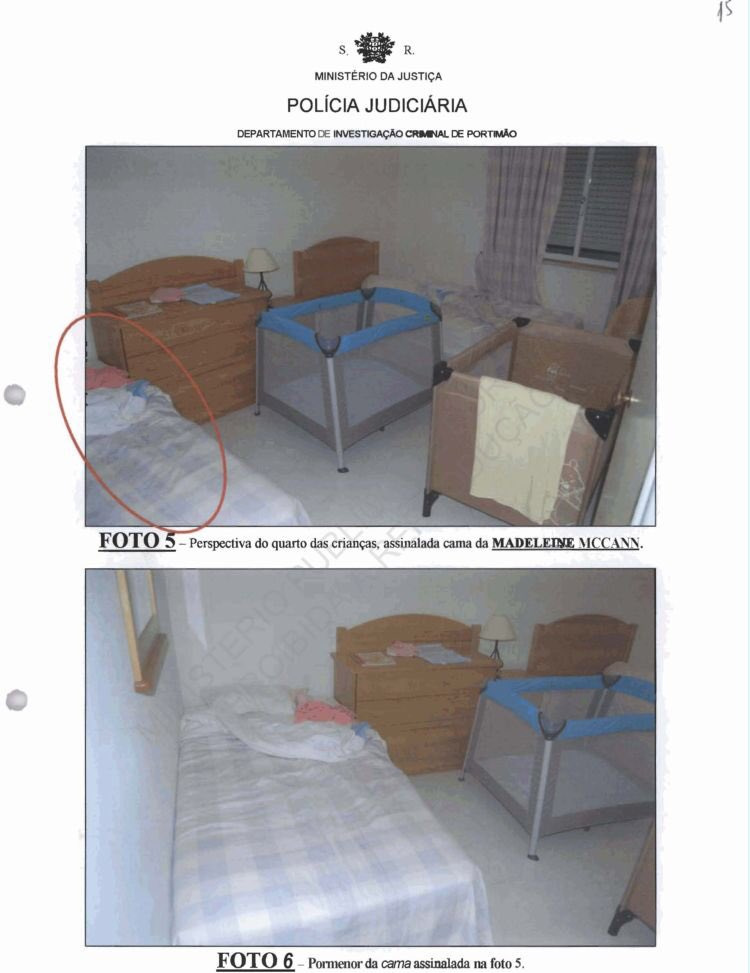
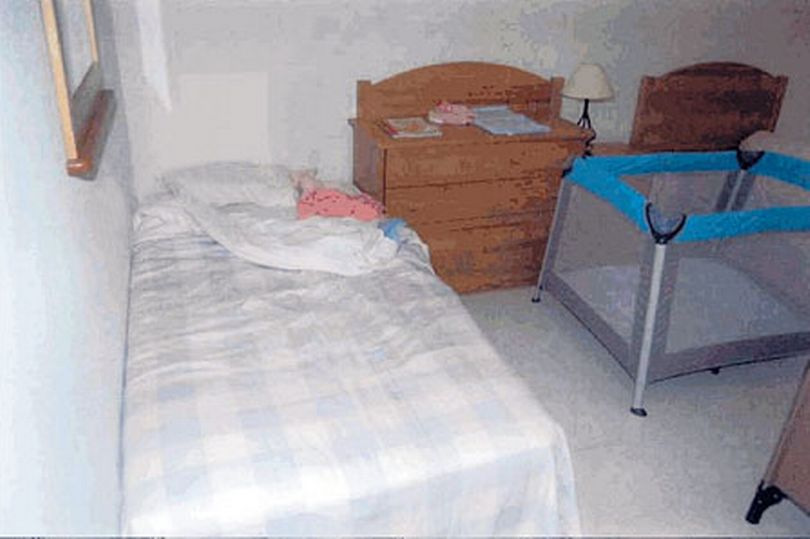
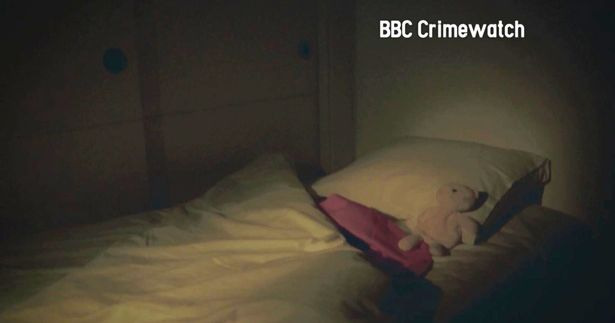
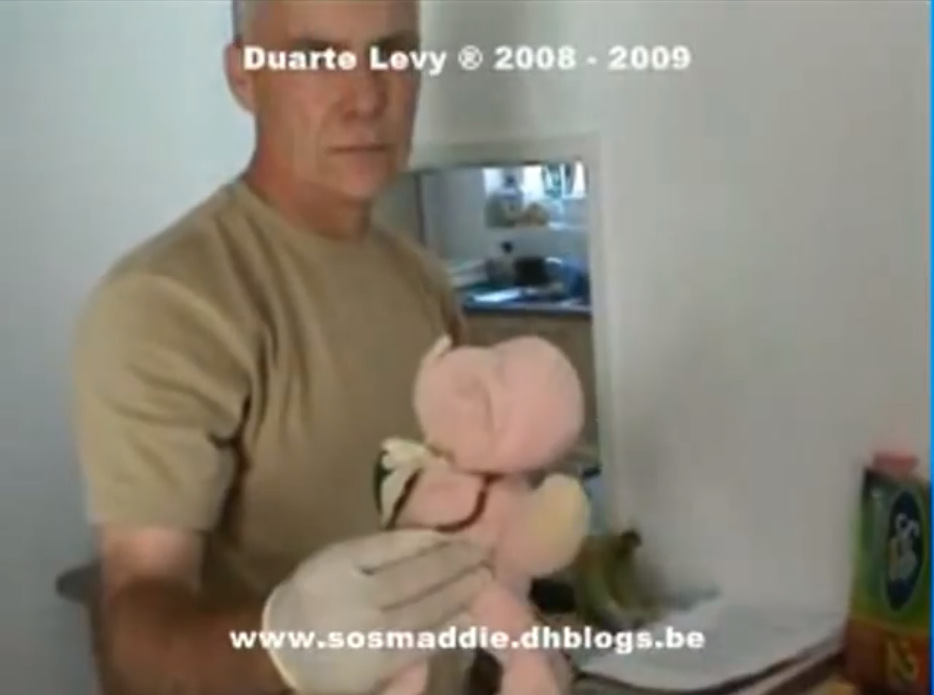
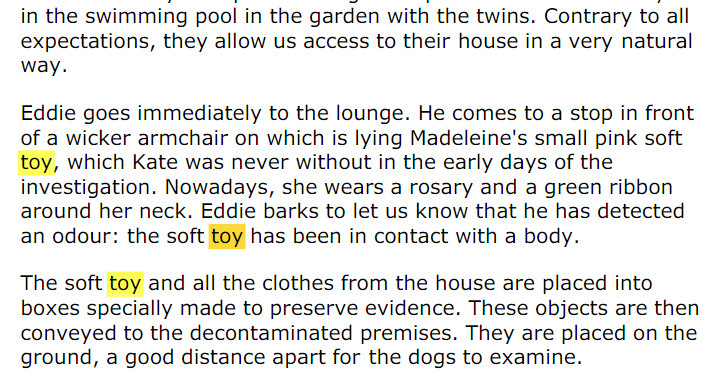
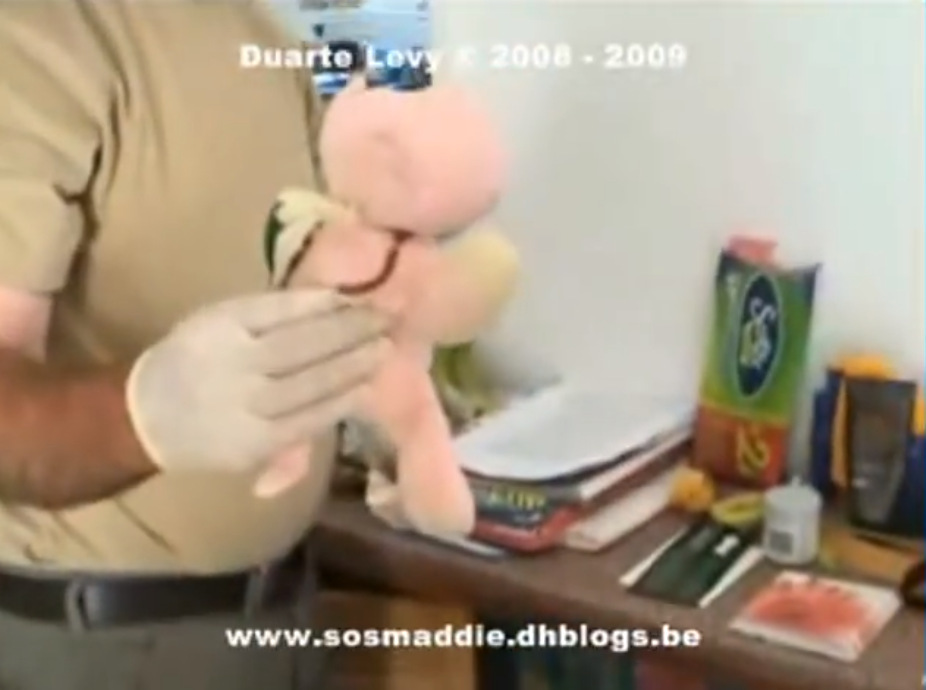
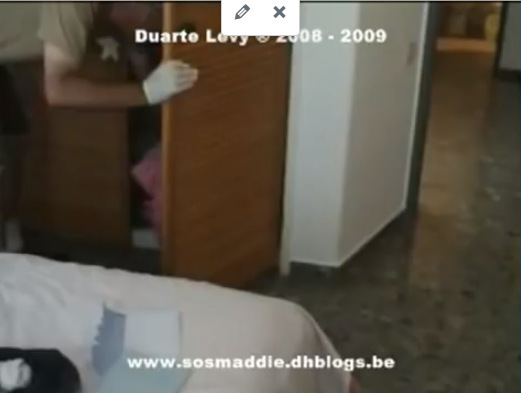
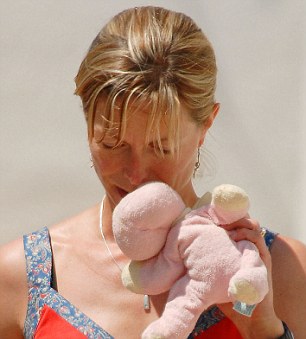
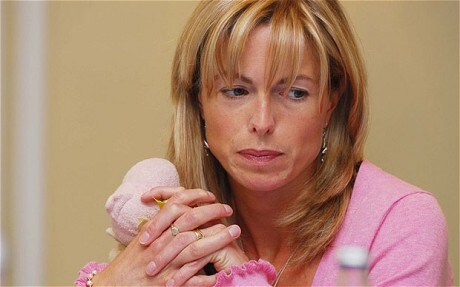
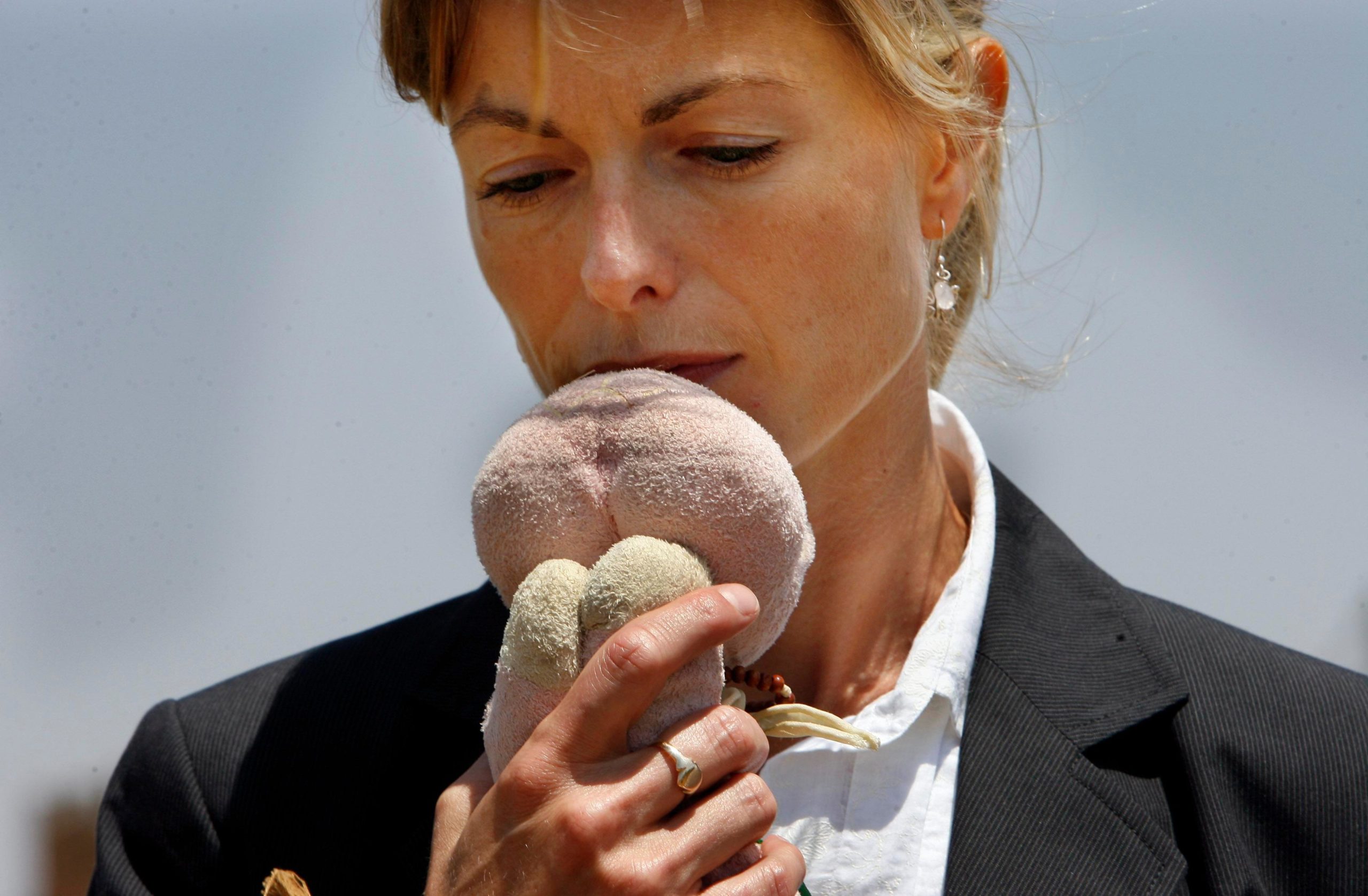
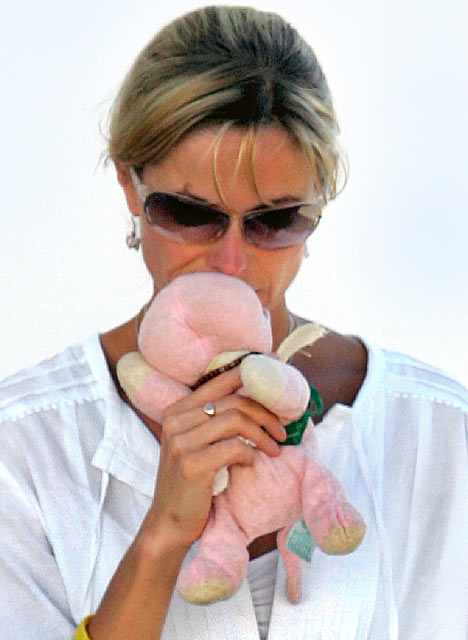

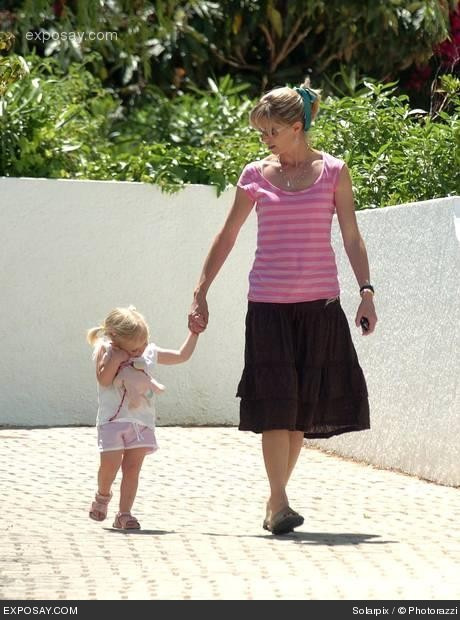
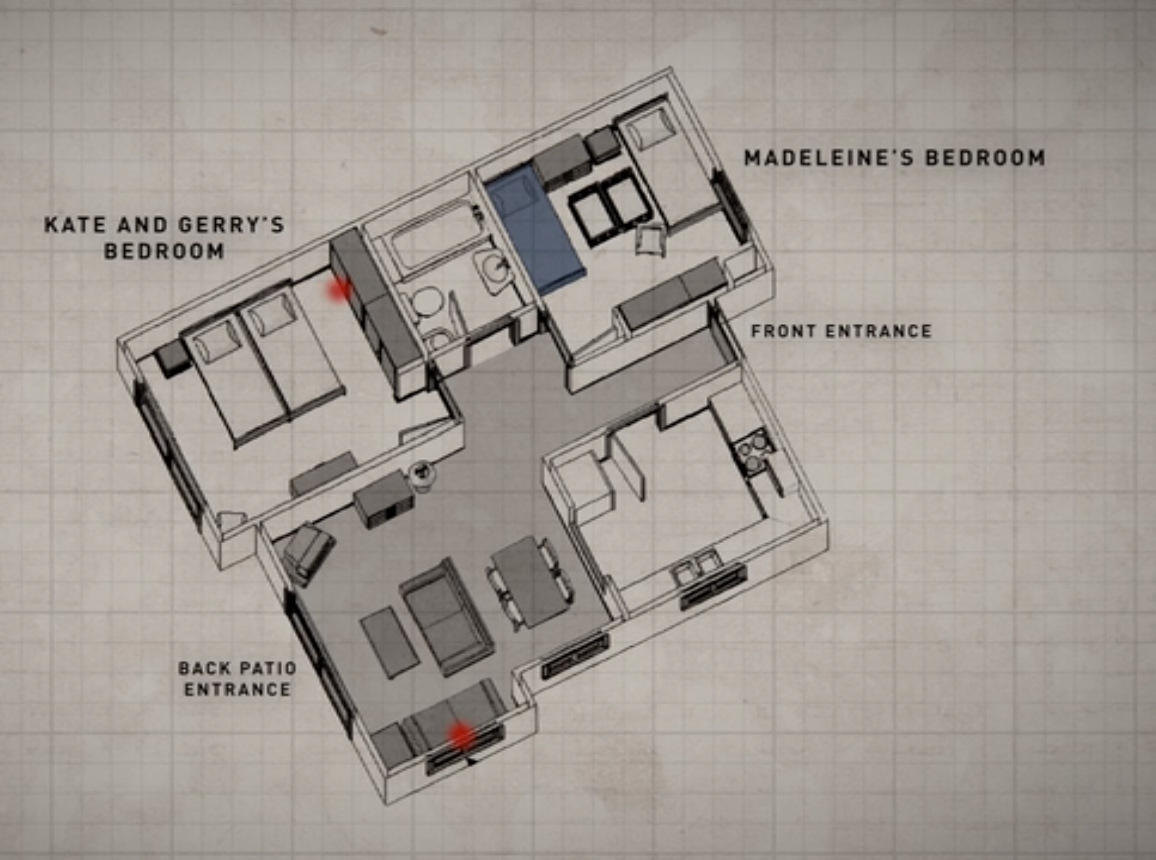
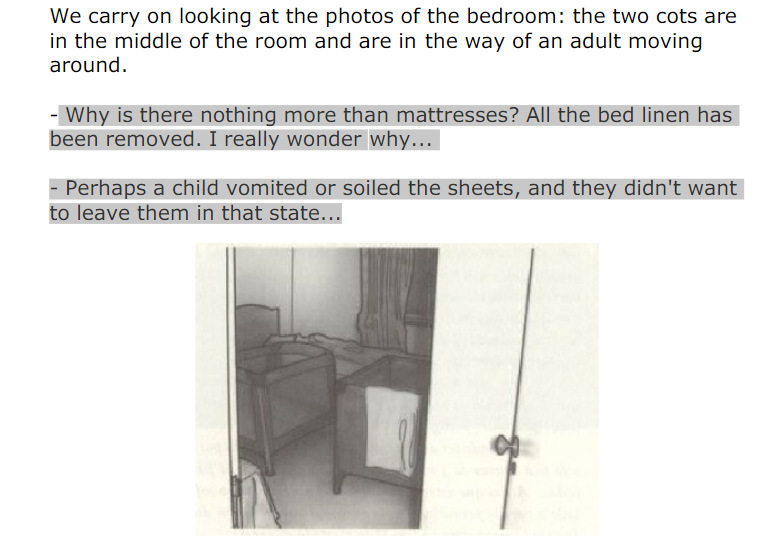
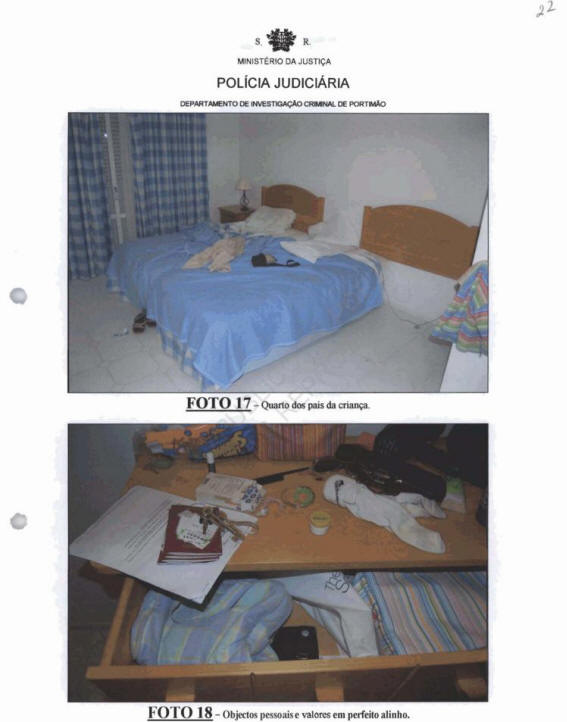
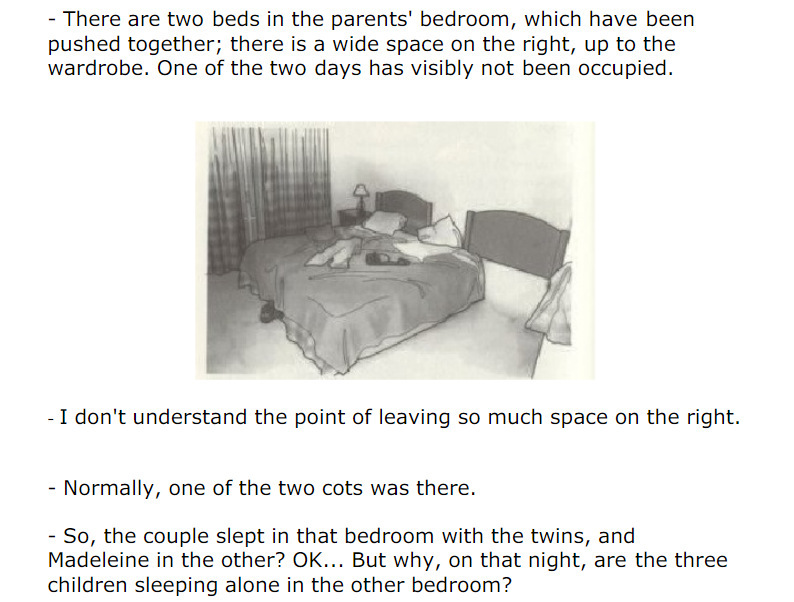
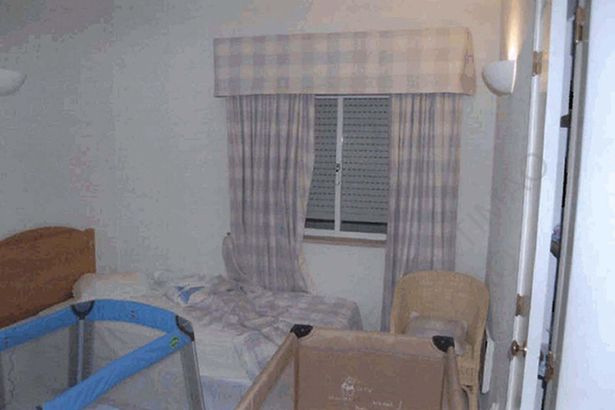
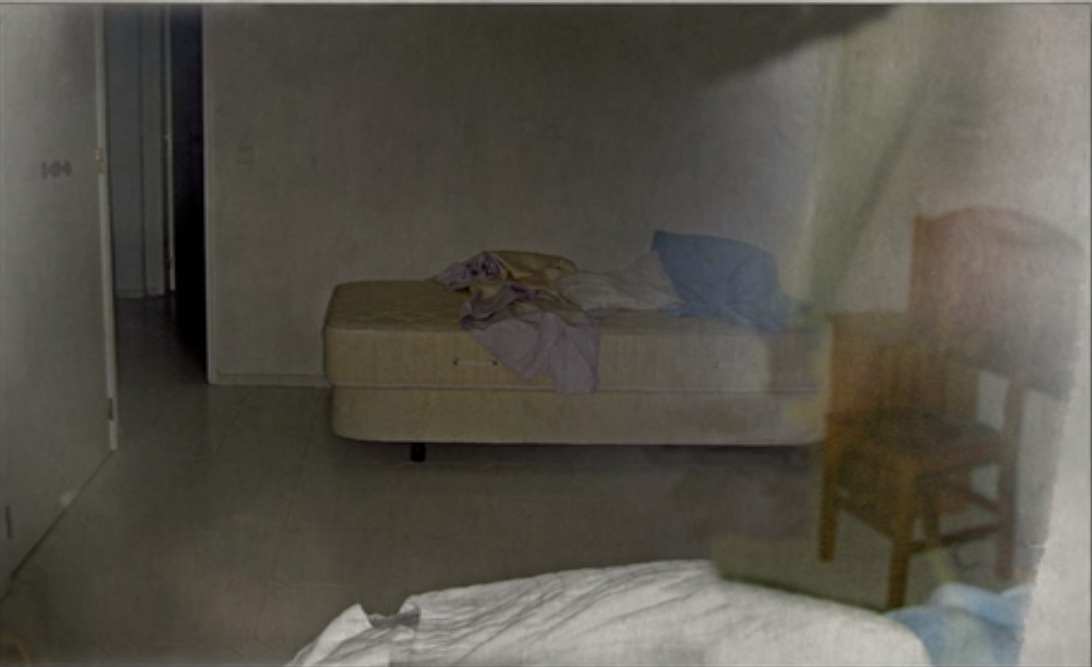
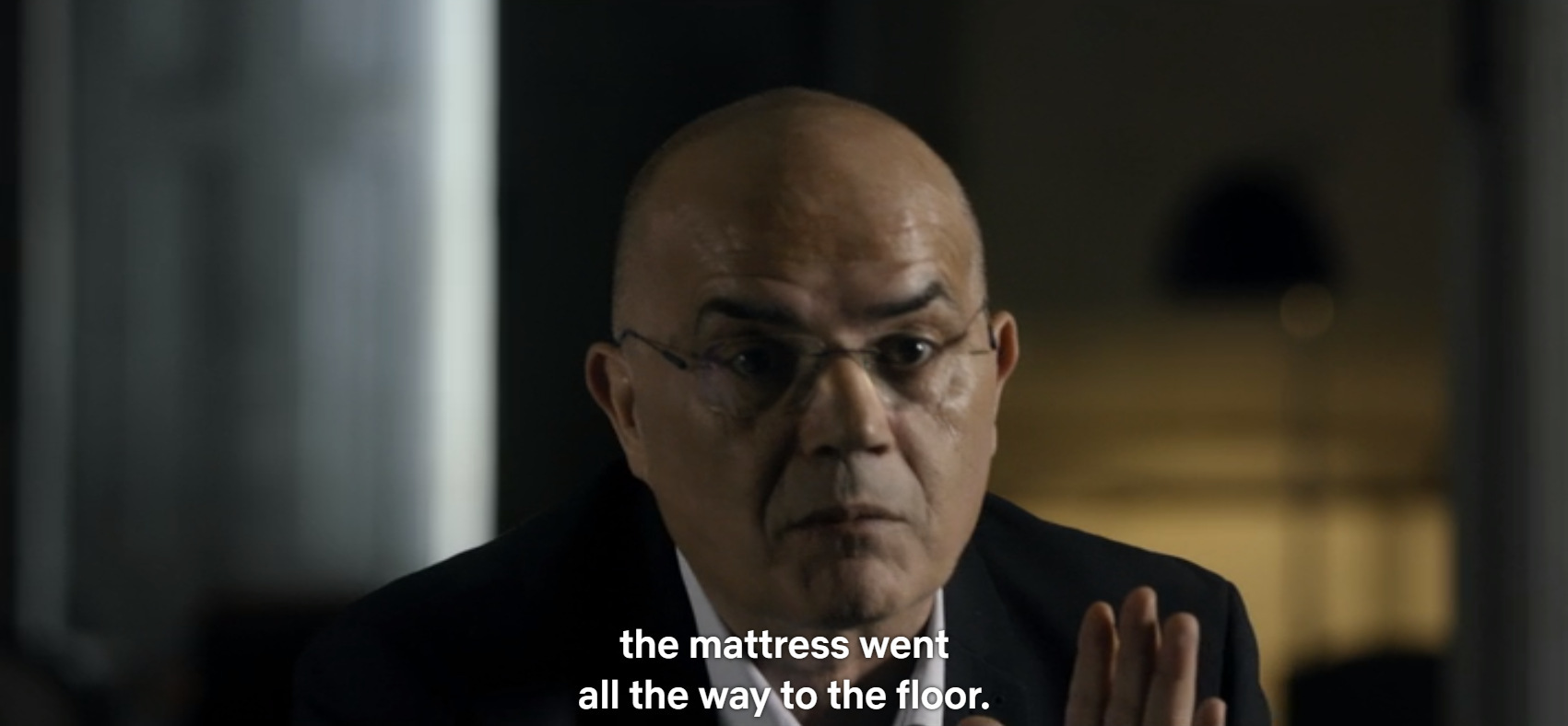
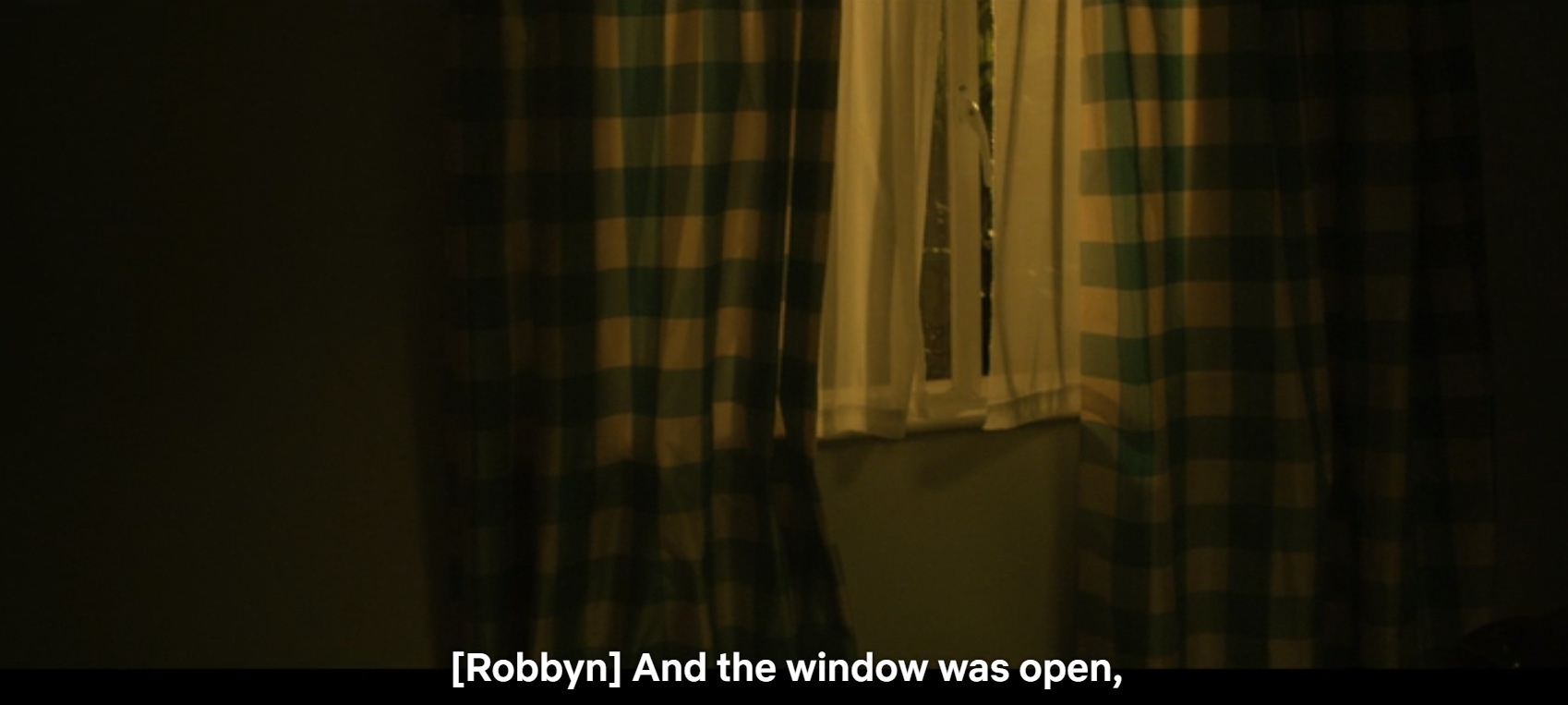
















































































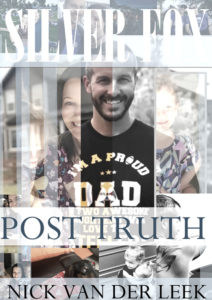






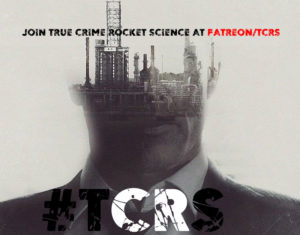

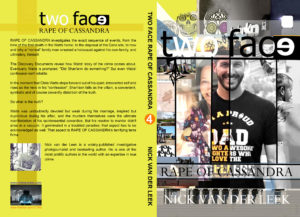
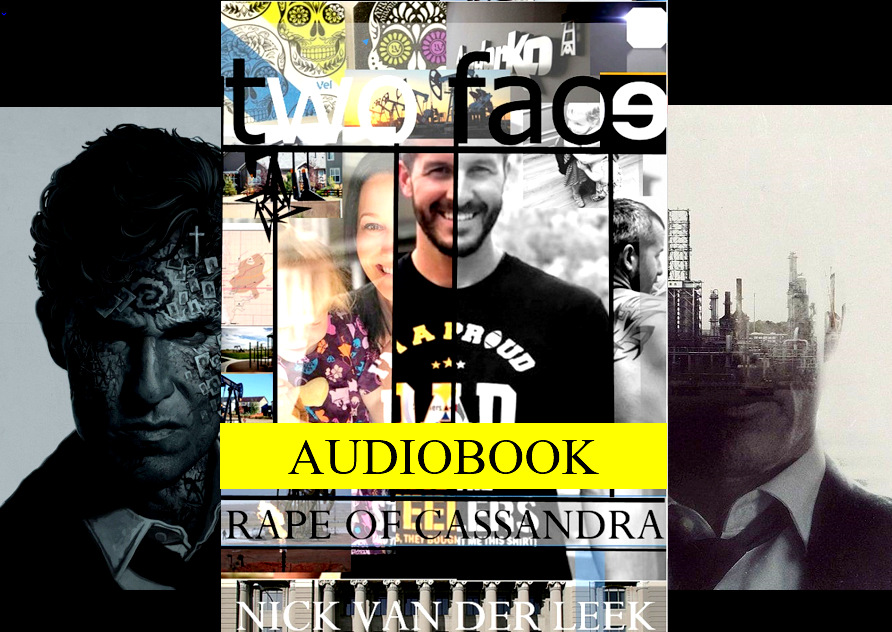
Recent Comments